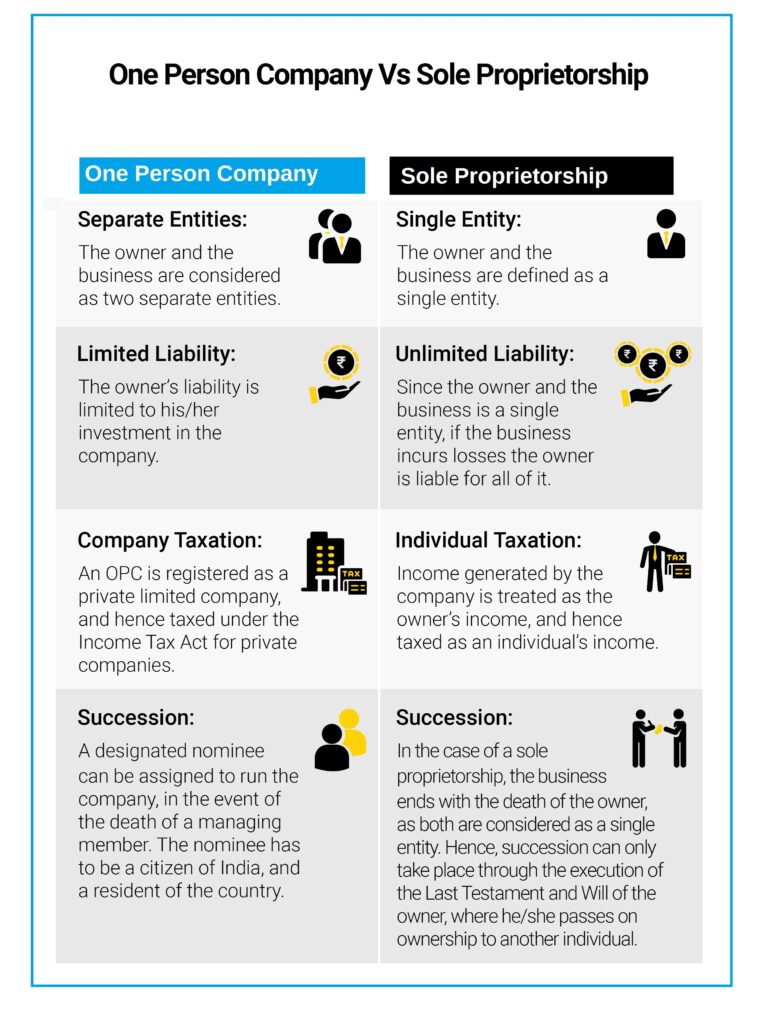One Person Company Vs Sole Proprietorship: Which Is Right For You?
Looking to start a Business, all by yourself? You have two options: opening a sole proprietorship or a one-person company. Read this article to make the right decision. Until a few years ago, a sole proprietorship was the only option for a person who wants to start a business by themselves. Now you have an alternative option: a one-person company. The concept of the one person company (OPC) allows a single person to run a company limited by shares. A sole proprietorship is an entity that is run and owned by one individual where there is no distinction between the owner and the business.

